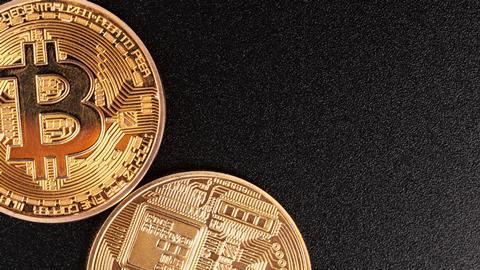Cryptocurrency and AI expert Shawnna Hoffmann believes bitcoin and blockchain are here to stay and suggests we learn to use the technology to safeguard our future
Bitcoin may be a familiar term, but concrete knowledge of how it works can elude us. Shawnna Hoffman empathises: “[People] don’t really know what it does, and it’s kind of spooky.”
Shawnna is an expert in cryptocurrencies, blockchain and artificial intelligence (AI). She has been at the vanguard of these developments for 25 years, and is often called upon to offer her expert opinion; speaking with heads of government, global leaders, CEOs and at the UN. Fortunately, she’s here to share her knowledge with us too.
An undeterrable interest in technology
At a young age Shawnna could already see the future unfolding, so prayed: “‘OK Lord, I want to have a front seat to this.” Though she was initially steered away from technology at school in favour of more ‘girly’ pursuits; her persistence paid off and she was allowed to join the boys in the computer lab. Her interest flourished, and her rich career is the result: “People are like, ‘Oh, you’ve done so much.’ No, I’ve just been really curious, and I’ve asked a lot of questions.
After high school Shawnna trained as a lawyer, working her way through college to fund her studies. She also took part in Miss America pageants, which offered scholarship programmes, winning several local titles (including Miss Rocky Mountain). Then an opportunity to work on Capitol Hill led her to Washington DC. It was an unforgettable experience, but law held more promise than politics so she moved back to Colorado to join a division of McGraw-Hill, later acquired by LexisNexis, and rose through the ranks.
Women are looking at it from the perspective of our children who are using these systems
Thanks to her specialist knowledge in law and technology, she was then approached to become an expert witness, and spent the next decade working on international court cases: “We would collect data, and I would testify [in court] as to the who, the what, the where, the when; and the attorneys would argue about the why.” One day in the early 2000s, a judge instructed her to summarise multiple data sets – in multiple languages, and testify in front of him two days later. It seemed impossible: “I thought, ‘It’s Friday! How are we gonna do that?’ So we built our first machine learning [AI] programme, and from there, I just got hooked.”
Another pivotal moment came in 2011, as she watched IBM’s Watson, a ‘DeepQA’ computer, win the TV gameshow Jeopardy!. She decided there and then to work for IBM: “I got a job [there]. I built out a business plan to bring AI full force into law and technology.” Her senior vice president loved it and told her to go ahead, but she quickly realised that AI wasn’t enough: “We needed some sort of system with transparency and traceability.”
Understanding blockchain
In 2017, Shawnna was invited to speak at a plenary session panel in Moscow by the then Russian prime minister. When a fellow speaker, a renowned academic from London, starting talking about blockchain, it was a revelation: “I was like, ‘Whoa! Hold on! This is the answer to all my problems.’ I almost jumped off the stage.’” She went back to IBM, to convince them that blockchain needed to converge with AI. At first they disagreed: So then I proved it,” says Shawnna, “and now they both work hand in hand–together.”
Soon after, she encountered one of the original founders of blockchain at a conference: “Somebody said, ‘Oh, there he is! That’s the founder of blockchain’…it was Scott Stornetta.” He created it in the early 1990s with Stuart Haber in Bell Labs, primarily to eliminate errors: “it was out way before bitcoin came into it.”
You can’t understand bitcoin or any other cryptocurrency (of which there are now many) without blockchain technology. Bitcoin, which was invented in 2008 by Satoshi Nakamoto, utilised its inherent functionality to create a public distributed ledger which recorded cryptocurrency transactions. And while ledgers in traditional banking are centralised and need multiple human touch-points, this ledger is decentralised, largely automated and housed across a vast network of computer servers: “You’re not stuck with a bank having that much power – instead it’s the power of the many, instead of just one.”
Shawnna explains: “All it is, is a new trading platform. What did we do 3,000 years ago? We traded a goat for a cow, or whatever our ancestors needed. They traded well [but] realised they couldn’t carry a cow 100 miles, but they could carry money. So then the first coins were traded. So it’s really the evolution of the finance system to where we’re sitting today.”
This is how it works: “You and I do a trade right now. A block [of data] is created for that trade. I then trade with someone else after me. So the next block that occurs includes the previous block and that block. And then, the next block that occurs includes these two blocks. And so you start to have what they call an immutable system, where there’s so many trades and so many things that occur, that you can’t cheat the system.”
Blockchain technology itself is open-source, which means it is available to anyone. And it can be applied beyond cryptocurrency (and often in conjunction with AI): to justice and policing, identity verification, contracts and even government record-keeping – to reduce corruption. During the pandemic, Shawnna developed a system that allowed doctors to access billions of much-needed PPE stock across the globe. It also offers particular advantages for micro-financing, especially in frontier economies where banks are less likely to risk loaning money. However, despite being transparent and traceable by design, it still gets used for nefarious activities: “Like most technologies, the bad guys figure out how to use it first. And then the good guys go, ‘That’s a great idea.’”
Cryptocurrency is bought and sold via online exchanges. Bitcoin’s value is entirely subjective, making it especially volatile: “so anyone who buys in or starts to mine [bitcoin] is saying, ‘we believe that this is worth X value’. So when we look at it going up over $100,000, it’s because it’s become more popular in the world.” Other coins might be backed by gold, other precious metals, minerals or natural resources. Or by fiat currencies, such as US dollars or UK sterling – known as ‘stable’ coins. Their regulation varies, depending on the country you live in.
We need Christians as part of these advanced technologies, as experts in the area. We can’t stand back and put our heads in the sand
Shawnna explains further: “Let’s say I want to buy something for $100,000, and bitcoin is worth $100,000. I can give them one bitcoin and then they, in exchange, would give me that piece of property or whatever [it is I want to buy]. So it’s used just like everyday money. Now, there are different ways to [earn] money: I might work in a mine, chopping at limestone or whatever. And then I go out, and somebody gives me cash. It’s very similar.” In the case of bitcoin, those ‘mining’ it are crunching numbers (called ‘hashing’) to validate the blockchain: “[So] I’m going to do a bunch of really strong mathematical equations, and then somebody’s going to hand me a portion of a coin.” They compete, often in groups: “At that point, I could win for being the best at that equation.” Mining bitcoin requires expensive ‘rigs’ – comprising computer equipment and software, which are prone to overheating and use a lot of electricity – another area of ethical concern. When it came out, Shawnna tried mining with her kids for fun: “And then I realised it would take forever to get one coin. I think I had, like, two one-millionths of a coin.”
Protecting the future
Shawnna’s advice for using bitcoin is to first ensure a thorough understanding of it from several different sources: “because sometimes they’re wrong, too”. And to never invest more than you’re willing to lose: “Definitely do not risk what you can’t afford.” She will only invest one per cent of her income in cryptocurrency and has seen people close to her lose money. Your online crypto-wallet, which is where your coins are kept, is susceptible to being hacked. A very strong password is essential, but don’t keep it online – on a piece of paper is best.
Working in the world of tech bros, the women “bring the heart”, says Shawnna: “We’re looking at it from the perspective of our children who are using these systems.” Combined with her experience, this guides her work to create safe and ethical approaches to cryptocurrencies, blockchain and AI. After working as Dell’s chief technology leader in legal strategy, she is now president of ‘Guardrail Technologies’, which literally provides the guardrails needed: “We’re in a very vulnerable time in society. Either we’re going to get this really right or really wrong.”
Shawnna firmly believes these technologies are God-given, and that our world is moving increasingly towards them: “We need Christians as part of these advanced technologies, as experts in the area. We can’t stand back and put our heads in the sand.”
More on Shawna’s work and responsible technology guardrail.tech
Words by Alex Noel

































No comments yet